The best books of 2024 to give this Christmas
From Percival Everett to Rachel Clarke, these are the critics' favourites
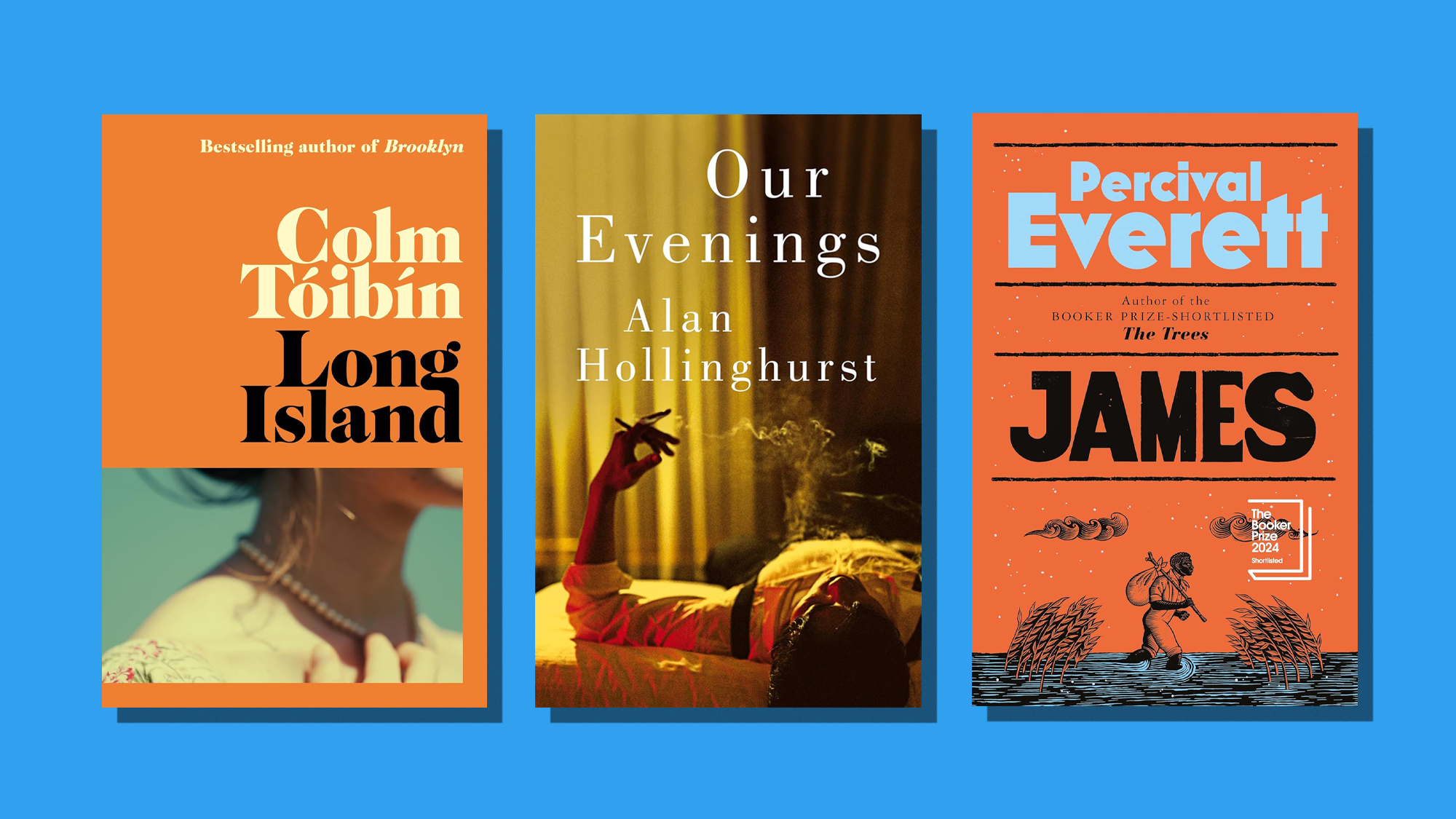
A free daily email with the biggest news stories of the day – and the best features from TheWeek.com
You are now subscribed
Your newsletter sign-up was successful
The critics' top eight choices based on Christmas selections in national newspapers.
Our Evenings by Alan Hollinghurst
Alan Hollinghurst's seventh novel – and his first since "The Sparsholt Affair" (2017) – is a bildungsroman narrated by a gay actor looking back on his life from late middle age. Dave Win, who is half-Burmese, recalls his time at boarding school and Oxford; his early successes on the stage; his various love affairs; and his adoring relationship with his seamstress mother. While some critics said that the novel's episodic structure meant that it lacked narrative cohesion, most found it profoundly moving and evocative – a work that not only charts the life of an individual, but also offers a compelling portrait of Britain over the past seven decades.
Praise:
The Week
Escape your echo chamber. Get the facts behind the news, plus analysis from multiple perspectives.

Sign up for The Week's Free Newsletters
From our morning news briefing to a weekly Good News Newsletter, get the best of The Week delivered directly to your inbox.
From our morning news briefing to a weekly Good News Newsletter, get the best of The Week delivered directly to your inbox.
"A tender, subtle evocation in perfectly calibrated prose of the way in which the individual life combines the ordinary with the extraordinary." (Lucasta Miller, The Spectator)
"Brimming with magnificent set pieces and exquisitely observed detail. This is Hollinghurst's best novel since 'The Line of Beauty'." (Laura Battle, FT)
"Funny, tender and deeply moving... [it] brought me more pleasure than any other book this year." (Johanna Thomas-Corr, The Sunday Times)
The Story of a Heart by Rachel Clarke
In 2017, a nine-year-old girl from Devon was fatally injured in a car crash. After her family asked for her organs to be donated, her heart was transported hundreds of miles and transplanted into a critically ill nine-year-old boy from Cheshire, who soon regained his health. In her latest work of non-fiction, Rachel Clarke, a palliative care doctor, tells the story of how the girl's tragic death gave life to the boy, and charts the various medical breakthroughs that enabled this to happen. Critics praised the book for its emotional force, its deftly constructed narrative, and for the fascinating light it sheds on many of the more remarkable aspects of modern medicine.
A free daily email with the biggest news stories of the day – and the best features from TheWeek.com
Praise:
"With exquisite sensitivity, Clarke describes how the two families collided in grief and hope, helped by the miracle of science." (Anjana Ahuja, The New Statesman)
"Deeply moving, but never at truth's expense... [Clarke is] realistic about the guilt that comes from one person's future being predicated on another's fatal misfortune." (Kate Womersley, FT)
"I defy anyone to read [this book] without collapsing into a snivelling mess." (Sam Leith, The Spectator)
James by Percival Everett
This Booker-shortlisted novel by US author Percival Everett retells the Adventures of Huckleberry Finn, from the vantage point of Jim – the runaway slave who joins Huck on his journey down the Mississippi River. In Mark Twain's 1884 classic, Jim is portrayed as a good-natured simpleton; in "James", this is revealed as a deliberate strategy adopted by Jim to make him less threatening to white people. In reality, he can read and write, and is highly intelligent. Critics praised the novel's linguistic inventiveness, its blend of seriousness and humour, and the intelligence with which it breathes new life into a classic work of American literature.
Praise:
"A masterful reimagining... Pulls no punches on the utter brutality of slavery – some of the scenes are genuinely harrowing – but there is humour too. Ultimately, it is a life-affirming read." (Nicola Sturgeon, The New Statesman)
"Impudent and satirical, Everett demands courageous open-mindedness from his readers." (Terri Apter, The TLS)
"The work of an American master at the peak of his powers." (Arin Keeble, FT)
A Voyage Around the Queen by Craig Brown
The latest work of "scattergun" biography by the satirist Craig Brown – who has penned similar recent books about Princess Margaret and The Beatles – offers a portrait of the late Queen. Based on Brown's copious reading of newspapers, memoirs and royal biographies, the book unfolds in 112 short chapters, each focused on a different aspect of its subject: one is about Elizabeth II's love of horse racing; another about her strategies for ending conversations. Critics marvelled at the way that Brown, for all his apparent lightheartedness, says profound things about both the monarchy and Britain.
Praise:
"A treasury of glittering bits... a witty and tender book about the dumpy woman who took pains to avoid ever saying anything interesting, and so fascinated millions." (Lucy Hughes-Hallett, The New Statesman)
"An unconventional tribute that offers a snapshot of almost a century of social history with a mix of royal insanity, and superior anecdotes, from farts and corgis to Paul McCartney and poets laureate." (Helen Davies, The Sunday Times)
"Unorthodox and wonderfully irreverent." (Fiona Sturges, The Guardian)
V13 by Emmanuel Carrère
This work of non-fiction by the memoirist Emmanuel Carrère is an account of France's longest-ever criminal trial: that of 20 defendants accused of helping to organise and, in one case, execute the Paris terrorist attacks of 13 November 2015, at the Bataclan theatre and other locations, which killed 130 and injured hundreds. Carrère attended the whole trial, and from this experience fashions a wide-ranging work – one that conveys the full horrors of the attacks, while also grappling with the larger questions they raised. Critics called the book an astounding work of journalism, and praised Carrère for moulding a huge volume of material into such an absorbing narrative.
Praise:
"A remarkably well-behaved piece of reportage... It is hard to imagine a book emerging [from the tragedy] that will be more informative, moving or likely to last." (Thomas P. Lambert, The Spectator)
"Quite possibly France's best non-fiction writer. Meticulous, moral... a masterpiece." (Lyndsey Stonebridge, The New Statesman)
"Carrère's icy, disclosing style is a marvel." (Will Lloyd, The Sunday Times)
Intermezzo by Sally Rooney
The fourth book by the Irish novelist Sally Rooney (the author of "Normal People") tells the story of two brothers: Pete, a successful barrister in his 30s, and geeky Ivan, ten years younger, a competitive chess player. Both are in mourning for their father, who has recently died from cancer. Rooney charts the brothers' romantic entanglements – as ever, there are long descriptions of sex – and explores how shared traumas from their past affect their relationship in the present. While some critics found the novel's rarefied atmosphere off-putting, most agreed that it was a work of great psychological insight, and one of Rooney's best to date.
Praise:
"Another story of complex romantic entanglements, only with a painful sibling conflict in the mix... It contains multitudes: fistfights, erotic agony, epiphany and even some farce." (Johanna Thomas-Corr, The Sunday Times)
"With watchmaker precision, she tweezers open the workings of a lattice of intimate relations." (Jesse Armstrong, The New Statesman)
"Her most mature work so far... a stunning stroke of genius." (Emma Loffhagen, The London Standard)
Long Island by Colm Tóibín
Colm Tóibín's sequel to his much-loved 2009 bestseller "Brooklyn" is set in the 1970s, 20 years after its predecessor. It begins with Eilis Lacey, the Irish emigrant in Brooklyn, discovering that her American husband, Tony Fiorello, has conceived a child with another woman. This prompts Lacey to return to Ireland, where she encounters familiar figures – the publican Jim Farrell, whom she became close to on her previous visit home, and her irascible mother. Most critics found "Long Island" to be a worthy successor to "Brooklyn" – a work that yet again reveals Tóibín's talent for capturing deep emotion in quiet, understated prose.
Praise:
"Tóibín's rich talents as a novelist need no further enumerating... you just have to read everything he writes." (Julian Barnes, The New Statesman)
"Sequels are often best avoided. But... Tóibín elegantly brings the story back to Ireland where he unfurls a poignant tale of paths not taken and opportunities lost." (Frederick Studemann, FT)
"Tóibín is a master of (often hilarious) detail, but also a genius in what he does not say... He is a magician." (Marion Turner, The TLS)
Wild Thing by Sue Prideaux
Today, the post-impressionist painter Paul Gauguin is often damned as an exploitative imperialist who found fame by painting semi-naked teenage girls in Tahiti (many of whom he also slept with). In this revisionist biography, which draws on a recently discovered memoir, Sue Prideaux suggests that the reality was more complex. Her Gauguin, while no saint, emerges as a man with good qualities: he was in some respects kind and sensitive, and was a vigorous defender of the indigenous culture of Polynesia. Prideaux was widely praised for her nuanced portrait of the artist, even if some reviewers felt that she sometimes let him off the hook too easily.
Praise:
"Scholarly, yes, but a page-turner too. The Gauguin of this superb, propulsive biography is like the tragic hero of a novel by Victor Hugo or Émile Zola. He is irascible, irrational and irresistible." (Laura Freeman, The Times)
"Detaches the artist from strident contemporary debates to place him firmly back in his own time." (Michael Prodger, The New Statesman)
"A fine rehabilitation... benefits from dramatic new material... beautifully produced." (Antony Beevor, The Spectator)
-
 How the FCC’s ‘equal time’ rule works
How the FCC’s ‘equal time’ rule worksIn the Spotlight The law is at the heart of the Colbert-CBS conflict
-
 What is the endgame in the DHS shutdown?
What is the endgame in the DHS shutdown?Today’s Big Question Democrats want to rein in ICE’s immigration crackdown
-
 ‘Poor time management isn’t just an inconvenience’
‘Poor time management isn’t just an inconvenience’Instant Opinion Opinion, comment and editorials of the day
-
 The best alcohol-free alternatives for Dry January
The best alcohol-free alternatives for Dry JanuaryThe Week Recommends Whether emerging from a boozy Christmas, or seeking a change in 2026, here are some of the best non-alcoholic beers, wines and spirits to enjoy
-
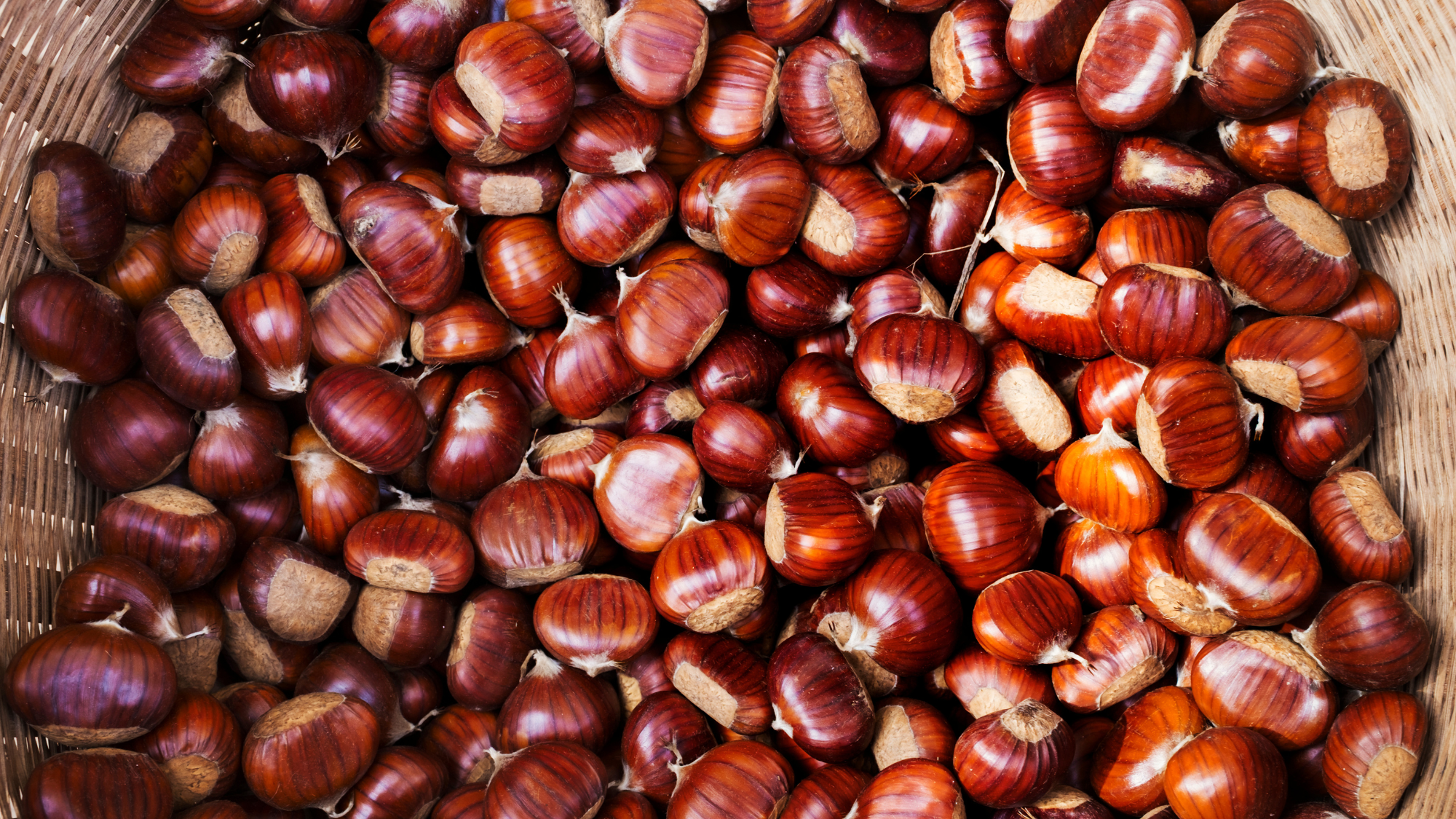 How to make the most of chestnuts
How to make the most of chestnutsThe Week Recommends These versatile nuts have way more to offer than Nat King Cole ever let on
-
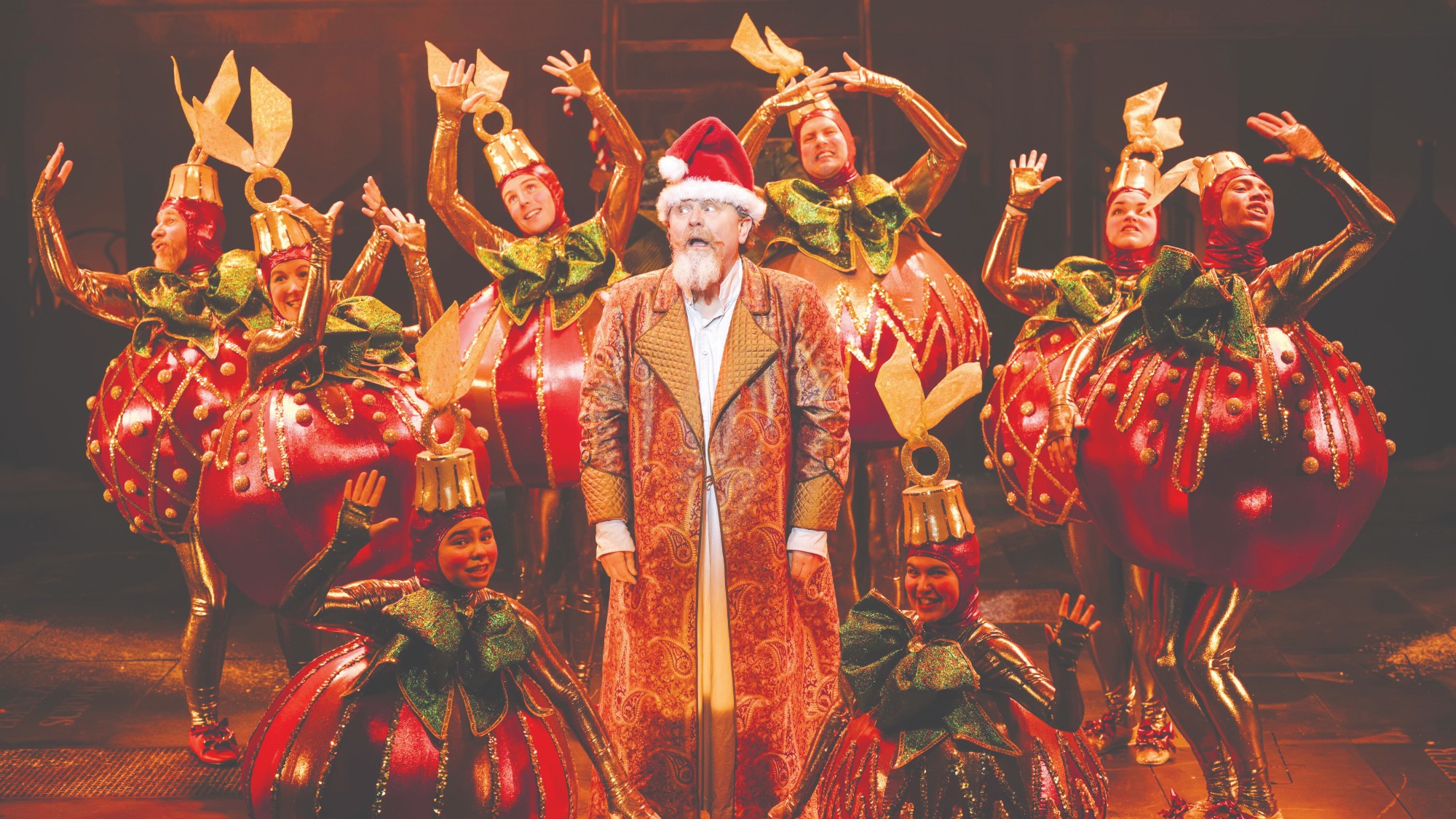 A Christmas Carol (or two)
A Christmas Carol (or two)The Week Recommends These are the most delightful retellings of the Dickens classic from around the country
-
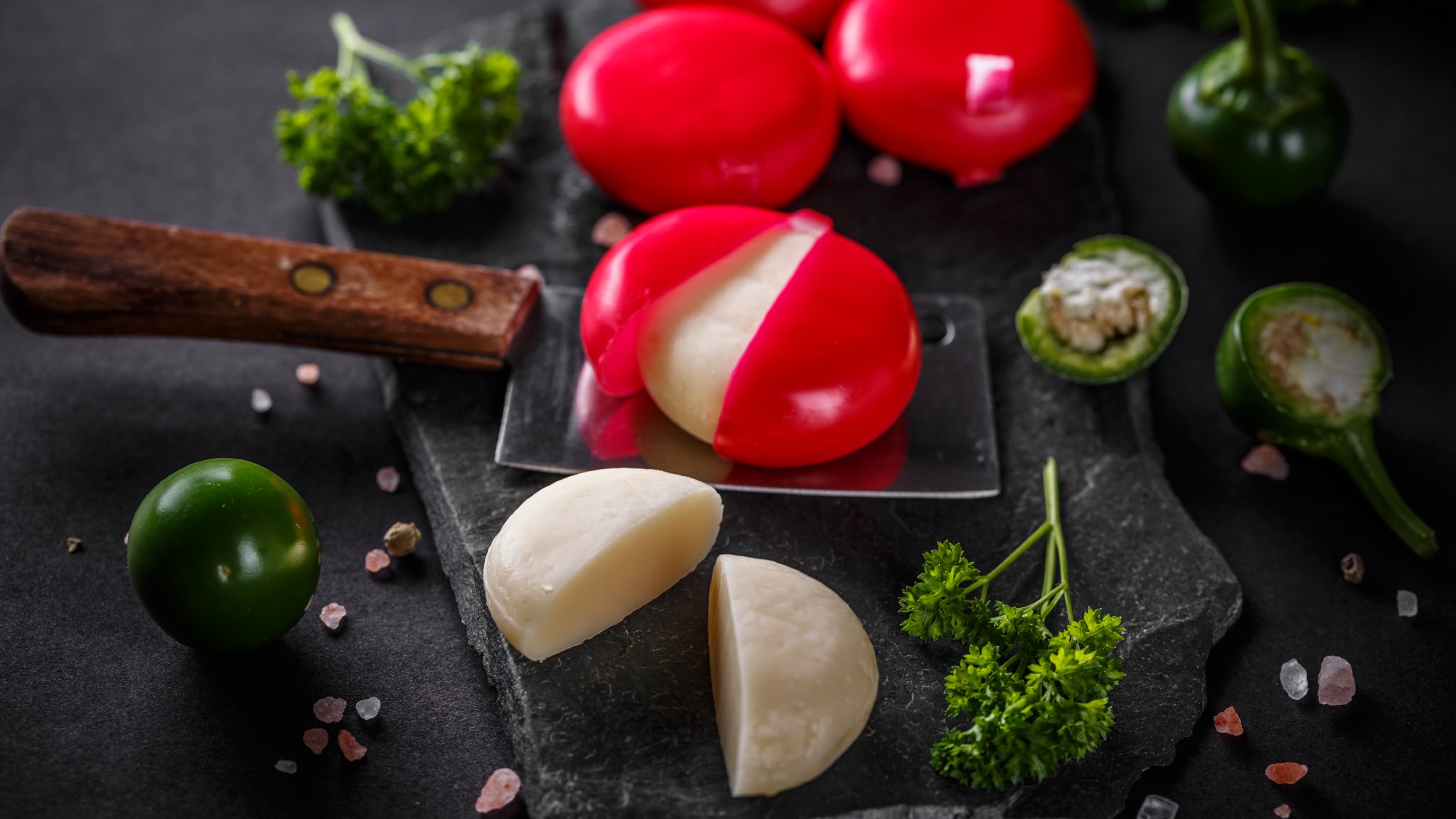 How weight-loss jabs are changing the way we eat
How weight-loss jabs are changing the way we eatIn The Spotlight Anti-obesity drugs have been a boon for Babybel but are supermarkets ready for a slimmed-down Christmas?
-
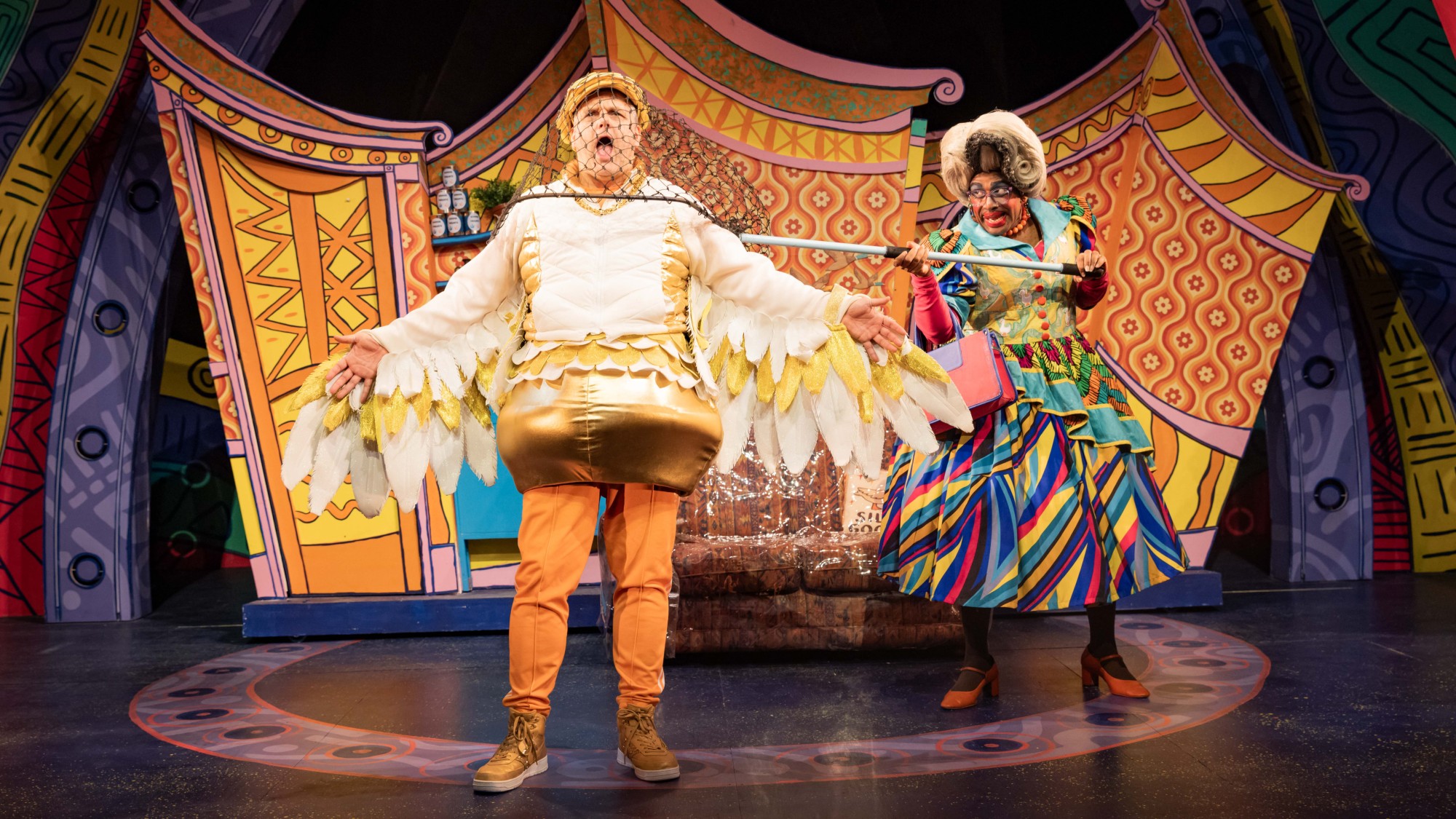 Oh yes they are! The UK’s best Christmas pantos
Oh yes they are! The UK’s best Christmas pantosThe Week Recommends Dive into the festive cheer, even into the new year, with some traditional favourites and modern twists
-
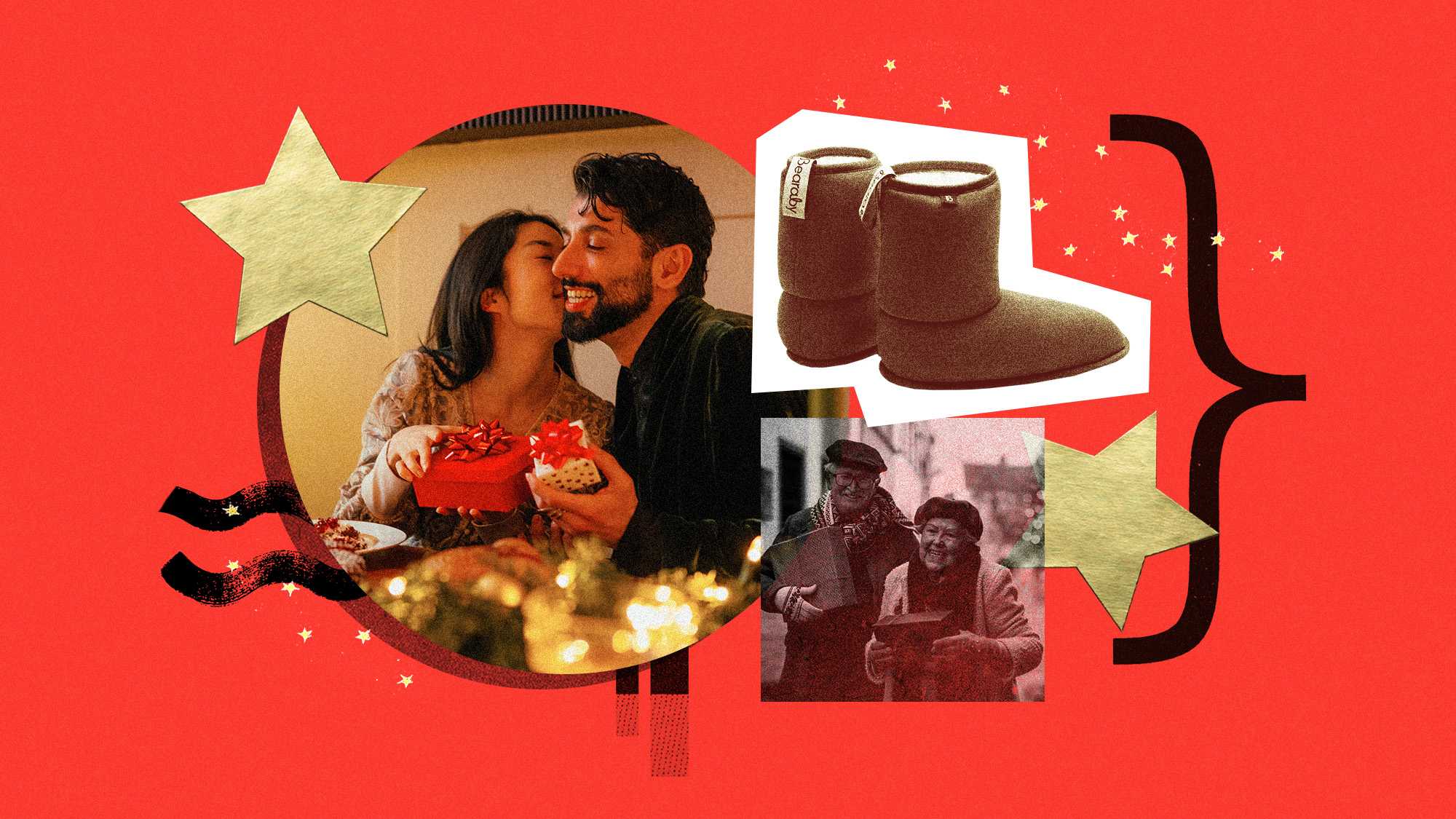 11 extra-special holiday gifts for everyone on your list
11 extra-special holiday gifts for everyone on your listThe Week Recommends Jingle their bells with the right present
-
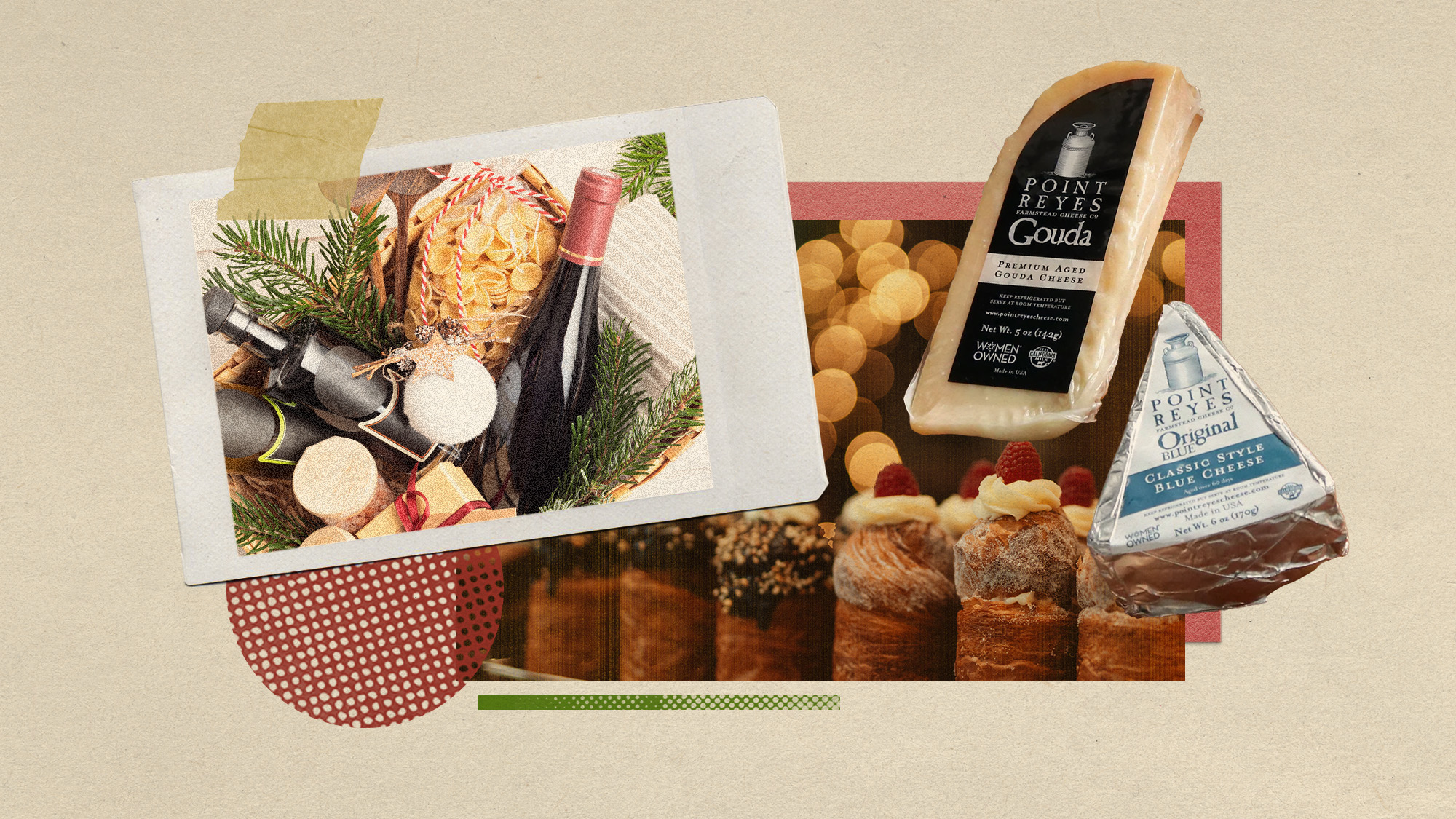 May your loved ones eat, drink and be merry with these 9 edible Christmas gifts
May your loved ones eat, drink and be merry with these 9 edible Christmas giftsThe Week Recommends Let them eat babka (and cheese and licorice)
-
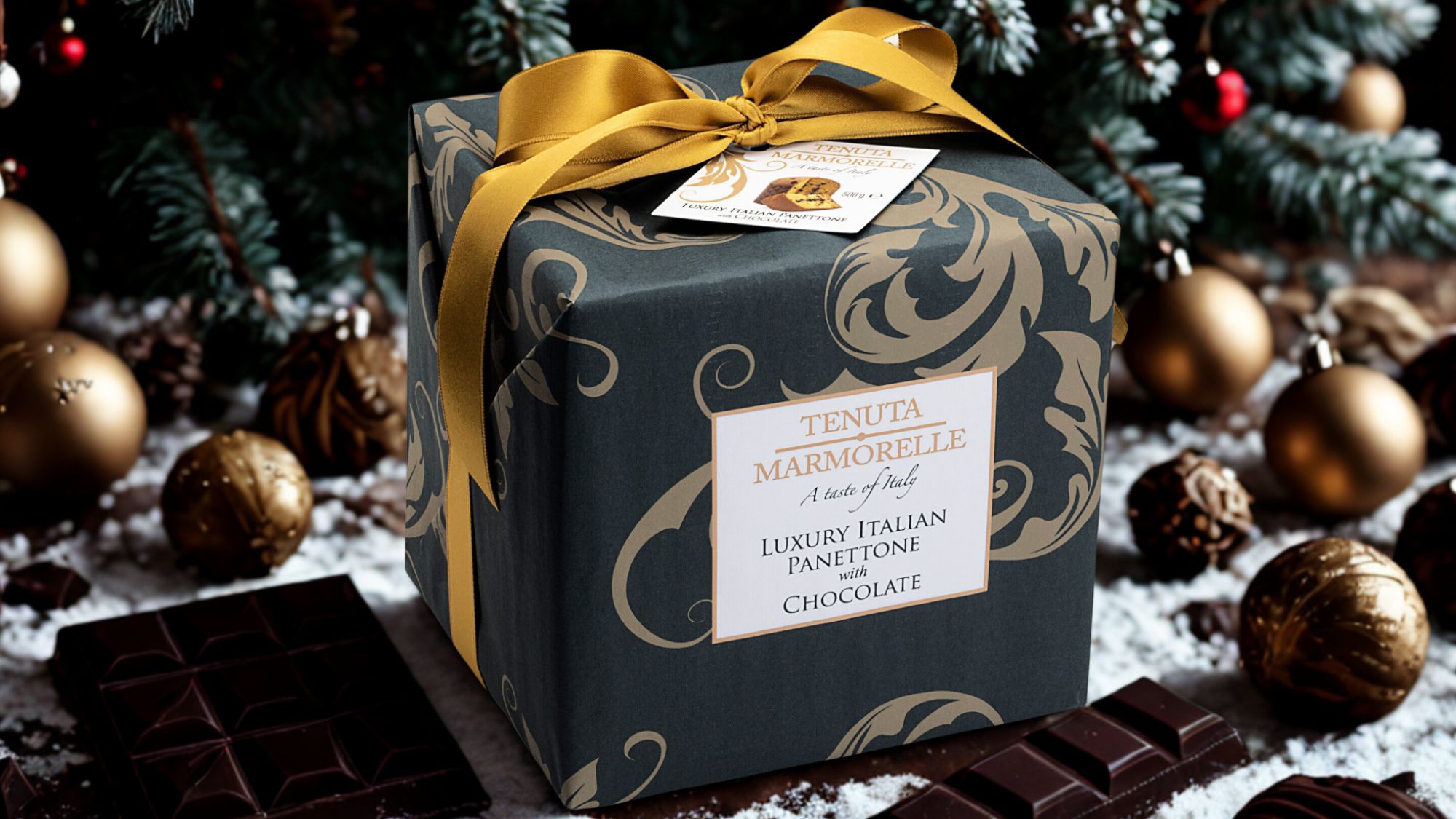 Best panettones for Christmas 2025: tried and tasted
Best panettones for Christmas 2025: tried and tastedThe Week Recommends Festive, fluffy and full of joy, these panettones provide magic in every bite